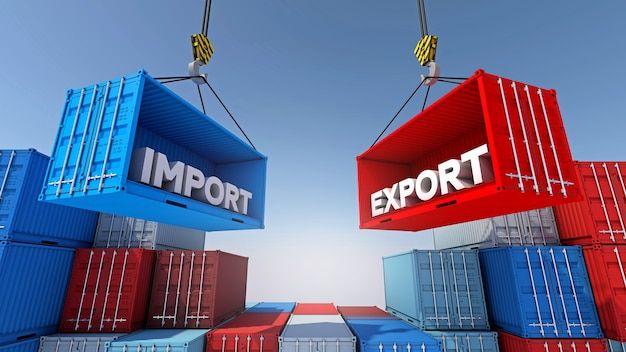China's Strategic Metal Export Restrictions
A Shift in Global Supply Chains
TRADE
Shahbaz Ahmed
12/21/20242 min read


China, the world's largest producer of critical metals such as gallium, germanium, and antimony, has recently imposed export bans on these materials. These metals are indispensable for manufacturing semiconductors, defense equipment, and other advanced technologies. This move is widely regarded as a strategic response to escalating trade tensions with the United States and could have far-reaching implications for global supply chains.
The Importance of Gallium, Germanium, and Antimony
Gallium:
Used extensively in semiconductors, gallium is a key component of high-performance electronics, including 5G devices, solar panels, and radar systems.
Germanium:
Vital for fiber optics, infrared optics, and high-efficiency solar panels, germanium plays a crucial role in both civilian and military applications.
Antimony:
This metal is critical for flame retardants, batteries, and munitions, making it essential for both industrial and defense sectors.
China's Motivations
Response to U.S. Trade Measures:
The export bans are seen as a countermeasure to restrictions imposed by the United States on Chinese technology and semiconductor exports. By targeting critical materials, China aims to leverage its dominance in the supply of these metals.
Strengthening Domestic Control:
By restricting exports, China ensures a steady supply for its domestic industries, particularly in advanced technology and defense sectors.
Economic Strategy:
This move aligns with China’s broader goal of maintaining its position as a global leader in key technologies by controlling the supply of raw materials essential for innovation.
Global Impact
Disruption to Supply Chains:
Countries reliant on Chinese exports, such as the United States, Japan, and several European nations, face potential disruptions in their supply chains. Industries producing semiconductors, defense equipment, and green technologies are likely to feel the immediate effects.
Search for Alternatives:
Western nations are now compelled to seek alternative sources for these critical metals. This includes developing domestic mining capabilities, recycling existing materials, and sourcing from other countries like Canada, Australia, and South Africa.
Rising Costs:
The restricted supply is likely to drive up prices for gallium, germanium, and antimony, increasing production costs for affected industries. This, in turn, could impact consumer prices for electronic devices and green technologies.
Geopolitical Ramifications:
The export bans could escalate trade tensions further, prompting retaliatory measures from the United States and its allies. This has the potential to exacerbate the ongoing technological and economic rivalry between China and the West.
Western Response
Policy Shifts:
Governments in the U.S. and Europe are already implementing policies to reduce dependence on Chinese imports. This includes investments in rare earth mining and processing facilities.
Strategic Stockpiling:
Some countries are increasing their reserves of critical metals to mitigate the immediate impact of China's export restrictions.
International Collaboration:
Alliances among Western nations to develop alternative supply chains are gaining traction. Joint ventures and agreements with resource-rich countries are being explored to secure access to these materials.
The Road Ahead
China's strategic metal export restrictions underscore the vulnerabilities of global supply chains in an era of geopolitical tension. While this move bolsters China’s leverage in the ongoing trade conflict, it also serves as a wake-up call for Western nations to diversify their sources and reduce reliance on a single supplier.
As countries adapt to this new reality, the race to secure critical materials will likely shape the next phase of technological and economic competition. The long-term impact of these restrictions will depend on how effectively nations can innovate and collaborate to overcome supply chain challenges.
